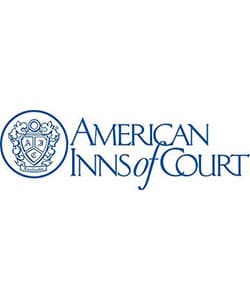When a product causes harm due to its defectiveness or because it fails to meet safety expectations, the legal pathway for seeking justice often falls under the realm of product liability law. In Idaho, as in many other states, product liability cases are crucial for ensuring that consumers are protected from unsafe products, and that responsible parties are held accountable for the injuries and damages that result from the use of defective products. Understanding who can be held liable in such cases is essential for anyone seeking to pursue a claim.
Manufacturers
At the forefront of any product liability case, the manufacturer of the product is often the first entity considered for liability. Manufacturers are responsible for designing, producing, and assembling products in a way that ensures they are safe for consumer use. When a product is found to be defective, whether due to a design flaw, a manufacturing error, or inadequate instructions and warnings, the manufacturer can be held liable for any injuries that result.
In Idaho, product liability law holds that manufacturers are responsible for ensuring that their products meet the safety standards expected by consumers. If a product has a defect that makes it unreasonably dangerous, the manufacturer may be held liable under strict liability. This means that the injured party does not necessarily have to prove that the manufacturer was negligent; it is enough to show that the product was defective and that the defect caused the injury. The focus is on the condition of the product rather than the conduct of the manufacturer.
Distributors and Wholesalers
Distributors and wholesalers, the entities that serve as intermediaries between the manufacturer and the retailer, can also be held liable in a product liability case in Idaho. These parties are responsible for ensuring that the products they distribute are safe and free from defects. If a defect is introduced during the distribution process, or if a distributor knowingly distributes a defective product, they may share liability for any resulting harm.
In some cases, the distributor or wholesaler may be liable even if they did not directly cause the defect. If they failed to properly inspect the products before distribution or did not take appropriate action when a defect was discovered, they can be held accountable. The law recognizes that these parties play a significant role in the supply chain and that their actions can contribute to the harm caused by defective products.
Retailers
Retailers, the businesses that sell products directly to consumers, can also be liable in an Idaho product liability case. Even though retailers are typically not involved in the design or manufacture of products, they have a responsibility to ensure that the products they sell are safe for consumers. If a retailer sells a defective product, they can be held liable for any injuries that result, especially if they knew or should have known about the defect.
Retailer liability can arise in several ways. For example, if a retailer continues to sell a product after receiving notice of a defect or recall, they may be held responsible for any resulting harm. Additionally, if a retailer fails to provide adequate warnings or instructions about the safe use of a product, they may be liable if a consumer is injured as a result.
Component Manufacturers
In some product liability cases, the defect may not be in the final product but in one of its components. Component manufacturers, the entities responsible for producing parts that are used in the assembly of a final product, can be held liable if a defect in their component causes injury. This type of liability is particularly common in cases involving complex products, such as automobiles or machinery, where multiple components are sourced from different manufacturers.
If a component is found to be defective and that defect contributes to the overall harm caused by the product, the component manufacturer may share liability with the final product manufacturer. The law recognizes that the safety of a product is only as strong as its weakest part, and component manufacturers must ensure that their parts meet the necessary safety standards.
Importers
In an increasingly globalized market, many products sold in Idaho are manufactured overseas. Importers, the entities that bring foreign-made products into the United States for sale, can also be held liable in a product liability case. Importers are considered the legal equivalent of manufacturers under U.S. law, which means they have the same responsibility to ensure that the products they import are safe for consumers.
If a defect is discovered in a foreign-made product that causes harm to a consumer, the importer can be held liable just as if they had manufactured the product themselves. This liability is particularly important in cases where the foreign manufacturer is beyond the reach of U.S. courts, making the importer the primary entity that can be held accountable for the defective product.
Lessors and Bailors
Product liability in Idaho can also extend to lessors and bailors, the parties who lease or rent products to consumers. These entities have a duty to ensure that the products they lease or rent are safe for use. If a defective product causes injury while under lease or rental, the lessor or bailor can be held liable for the harm caused.
For example, if a company leases defective machinery that results in an injury to a worker, the company may be liable if it failed to inspect the machinery for defects or provide adequate warnings about its safe operation. The liability of lessors and bailors underscores the importance of maintaining and inspecting leased or rented products to prevent harm to consumers.
Rules of a Personal Injury Claim Choosing a Personal Injury AttorneyRelated Videos
Successor Corporations
In some cases, a company that manufactured a defective product may no longer exist due to a merger or acquisition. In such situations, the successor corporation, the entity that acquired the original company, may inherit liability for the defective products manufactured by its predecessor. Idaho law recognizes that consumers should not be left without recourse simply because a company has changed hands.
The successor corporation’s liability typically depends on the terms of the merger or acquisition. If the successor corporation expressly assumes the liabilities of the predecessor, it can be held accountable for any injuries caused by defective products. Even in cases where the liabilities are not explicitly assumed, the successor corporation may still be liable under certain legal theories, such as the continuation of the predecessor’s business.
Negligence vs. Strict Liability in Idaho Product Liability Cases
In Idaho, product liability cases can be pursued under two main legal theories: negligence and strict liability. Negligence focuses on the conduct of the defendant, requiring the injured party to prove that the defendant failed to exercise reasonable care in the design, manufacture, or sale of the product. Strict liability, on the other hand, focuses on the condition of the product itself, holding the defendant liable regardless of whether they were negligent.
Under strict liability, the injured party must demonstrate that the product was defective, that the defect existed when the product left the defendant’s control, and that the defect caused the injury. This theory of liability is particularly important in product liability cases because it allows injured consumers to recover damages without having to prove that the defendant acted carelessly.
Verdicts & Settlements
Negligence claims, while more difficult to prove, are still an important aspect of product liability law in Idaho. In a negligence case, the injured party must show that the defendant owed a duty of care, that they breached that duty, and that the breach caused the injury. Negligence claims are often pursued when the defect in question is not obvious or when the defendant’s actions contributed to the defect in some way.
Proving Liability in an Idaho Product Liability Case
Proving liability in a product liability case in Idaho requires a thorough understanding of both the law and the facts of the case. The injured party must gather evidence to demonstrate that the product was defective, that the defect caused their injury, and that the defendant is the party responsible for the defect. This evidence may include product testing, testimony, and documentation of the defect and the injury.
One of the challenges in proving liability is establishing a clear connection between the defect and the injury. This often requires detailed investigation and analysis, especially in cases involving complex products or multiple defendants. The injured party must also navigate the legal process, which can involve filing a lawsuit, engaging in discovery, and presenting their case in court.
Because product liability cases can be complex and challenging, it is important for injured consumers to seek legal representation from an experienced attorney who understands Idaho product liability law. An attorney can help gather the necessary evidence, build a strong case, and advocate for the injured party’s rights throughout the legal process.
If you or a loved one has been injured by a defective product in Idaho, it is important to take action to protect your rights. The legal team at Hepworth Holzer, LLP has the experience and knowledge necessary to help you navigate the complexities of a product liability case. We are committed to holding manufacturers, distributors, and other responsible parties accountable for the harm caused by defective products. Contact us today for a consultation and let us help you pursue the compensation you deserve. Your safety and well-being are our top priority, and we are here to stand by your side every step of the way.











